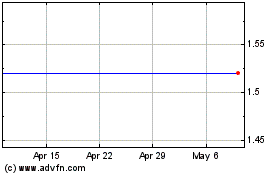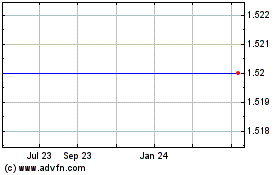Neuralstem, Inc. (Nasdaq:CUR), a biopharmaceutical company focused
on the development of central nervous system therapies based on its
neural stem cell technology, announced that it has reached over 50%
enrollment in its Phase 2 clinical trial evaluating NSI-189, a
novel neurogenic small molecule, for the treatment of major
depressive disorder (MDD).
The ongoing Phase 2 MDD study is testing two
doses (40mg QD and 40mg BID) of NSI-189, a small molecule in an
oral tablet formulation. The multi-center, double-blind,
placebo-controlled Phase 2 study plans to enroll a total of 220
moderately depressed patients at 12 trial sites. The primary
efficacy endpoint is a reduction in depression symptoms, as
measured by the Montgomery-Asberg Depression Rating Scale (MADRS).
Secondary endpoints include additional clinical outcomes and
cognition improvement measures. The study duration is for 12 weeks,
with a separate observational study to monitor the responders for
six months in order to assess NSI-189’s potential durability of
benefits. The overall study principal investigator (PI) is
Maurizio Fava, MD, Executive Vice Chair, Department of Psychiatry
and Executive Director, Clinical Trials Network and Institute,
Massachusetts General Hospital. More information about the
trial is available at www.clinicaltrials.gov (NCT02695472).
“We are very pleased to have reached the halfway
milestone in our Phase 2 MDD trial ahead of schedule and remain
confident that we will provide study results in the second half of
2017,” said Rich Daly, CEO. “Moreover, NSI-189 has been shown
to be safe thus far and may provide patients an alternative to
current commercialized therapies.”
NSI-189, the lead compound in Neuralstem’s
neurogenic small molecule program, is a proprietary, new chemical
compound that stimulates neurogenesis, synaptogenesis and increases
hippocampal volume, all of which are believed to be effective in
reversing depression, enhancing cognition, and promoting
neuroregeneration. Neuralstem recently reported in vitro data
showing that mouse hippocampal slices treated with NSI-189 produced
a time- and concentration-dependent enhancement of both short-term
potentiation (STP) and long-term potentiation (LTP). LTP and STP
refer to strengthened communication between neurons and key
components of synaptic plasticity, which play critical roles in
memory formation and cognition.
About the Trial
This Phase 2 double-blind, placebo-controlled
study will test NSI-189 in a study of 220 patients with major
depressive disorder in an out-patient setting. Patients will be
randomized to three cohorts: NSI-189 40 mg twice daily (BID),
NSI-189 40 mg once daily (QD), or placebo. After the initial
screening period, the randomized portion of the trial will be 12
weeks in duration. Patients will be evaluated along several
depression measurement scales, including the MADRS and Hamilton
Rating Scale (HAMD-17), with a primary efficacy endpoint of MARDRS
total score change from baseline. Secondary endpoints will include
cognition measurements. The study is 80% powered to show an
improvement in the primary endpoint, compared to placebo, with an
effect size of d=0.5 (p ≤ 0.05). If either arm shows efficacy
the trial can serve as a registration trial. After the 12-week
trial period, patients will be followed for an additional six
months of observation to assess durability effect of the drug.
Patients seeking information on the trial should
visit: clinicaltrials.gov (NCT02695472).
About Neuralstem Neuralstem's patented
technology enables the commercial-scale production of multiple
types of central nervous system stem cells, which are being
developed as potential therapies for multiple central nervous
system diseases and conditions.
Neuralstem’s technology enables the generation
of small molecule compounds by screening hippocampal stem cell
lines with its proprietary systematic chemical screening
process. The screening process has led to the discovery and
patenting of molecules that Neuralstem believes may stimulate the
brain's capacity to generate new neurons, potentially reversing
pathophysiologies associated with certain central nervous system
(CNS) conditions.
The company has completed Phase 1a and 1b trials
evaluating NSI-189, a novel neurogenic small molecule product
candidate, for the treatment of major depressive disorder or MDD,
and is currently conducting a Phase 2 efficacy study for MDD.
Neuralstem's stem cell therapy product
candidate, NSI-566, is a spinal cord-derived neural stem cell line.
Neuralstem is currently evaluating NSI-566 in three indications:
stroke, chronic spinal cord injury (cSCI), and Amyotrophic Lateral
Sclerosis (ALS).
Neuralstem is conducting a Phase 1 safety study
for the treatment of paralysis from chronic motor stroke at the
BaYi Brain Hospital in Beijing, China. In addition, NSI-566
was evaluated in a Phase 1 safety study to treat paralysis due to
chronic spinal cord injury, as well as, a Phase 1 and Phase 2a risk
escalation, safety trials for ALS. Patients from all three
indications are currently in long-term observational follow-up
periods to continue to monitor safety and possible therapeutic
benefits.
Cautionary Statement Regarding Forward Looking
Information:
This news release contains "forward-looking
statements" made pursuant to the "safe harbor" provisions of the
Private Securities Litigation Reform Act of 1995. Such
forward-looking statements relate to future, not past, events and
may often be identified by words such as "expect," "anticipate,"
"intend," "plan," "believe," "seek" or "will." Forward-looking
statements by their nature address matters that are, to different
degrees, uncertain.
Specific risks and uncertainties that could
cause our actual results to differ materially from those expressed
in our forward-looking statements include risks inherent in the
development and commercialization of potential products,
uncertainty of clinical trial results or regulatory approvals or
clearances, need for future capital, dependence upon collaborators
and maintenance of our intellectual property rights. Actual results
may differ materially from the results anticipated in these
forward-looking statements. Additional information on potential
factors that could affect our results and other risks and
uncertainties are detailed from time to time
in Neuralstem's periodic reports, including the Annual
Report on Form 10-K for the year ended December 31, 2015, and
filed with the Securities and Exchange Commission (SEC)
on March 14, 2016, Form 10-Q for the period ended June
30, 2016, and in other reports filed with the SEC.
Contact:
Neuralstem – Investor Relations:
Danielle Spangler
301.366.1481
Planet Communications - Media Relations:
Deanne Eagle
917.837.5866
Neuralstem (NASDAQ:CUR)
Historical Stock Chart
From Mar 2024 to Apr 2024

Neuralstem (NASDAQ:CUR)
Historical Stock Chart
From Apr 2023 to Apr 2024
